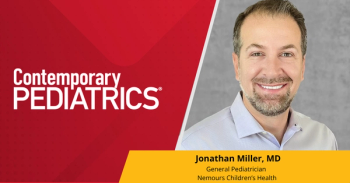
AAP: Children of military have unique health needs
A recent clinical report from the American Academy of Pediatrics (AAP) outlines how pediatricians can best meet the unique health and mental health needs of children in US military families.
Although the US Department of Defense provides physical and mental health services for active-duty service members, National Guard, and Reserve service members and their families, nonmilitary general pediatricians care for more than 50% of military children before, during, and after wartime deployments.
According to a recent
The AAP report outlines problems unique to the 3 stages of deployment-predeployment, deployment, and postdeployment-as well as the signs of stress most prominent in each age group. Preschool children, for example, may feel confused, angry, or guilty and may exhibit clingy, irritable, regressive, or aggressive behavior and/or sleep or eating disturbances. School-aged children may feel sad. They may worry excessively about their missing parent and fear he/she will not return. They may exhibit new behavior problems, rapid mood swings, problems at school, or somatic complaints. Adolescents are the most likely age group to act out with misdirected behavior; to have school problems; to react with apathy, noncommunication, or denial of feelings; and to place increased importance on friends to the family’s detriment.
In outlining the role of the pediatrician, the researchers explain that the single most important question a pediatrician can ask might just be, “How are you doing with this wartime deployment?” Pediatricians must be prepared to assess the level of stress in the family and child and to use anticipatory guidance, psychoeducation, and surveillance and screening to determine if referral to a mental health professional is warranted.
The AAP provides additional support and
Newsletter
Access practical, evidence-based guidance to support better care for our youngest patients. Join our email list for the latest clinical updates.








